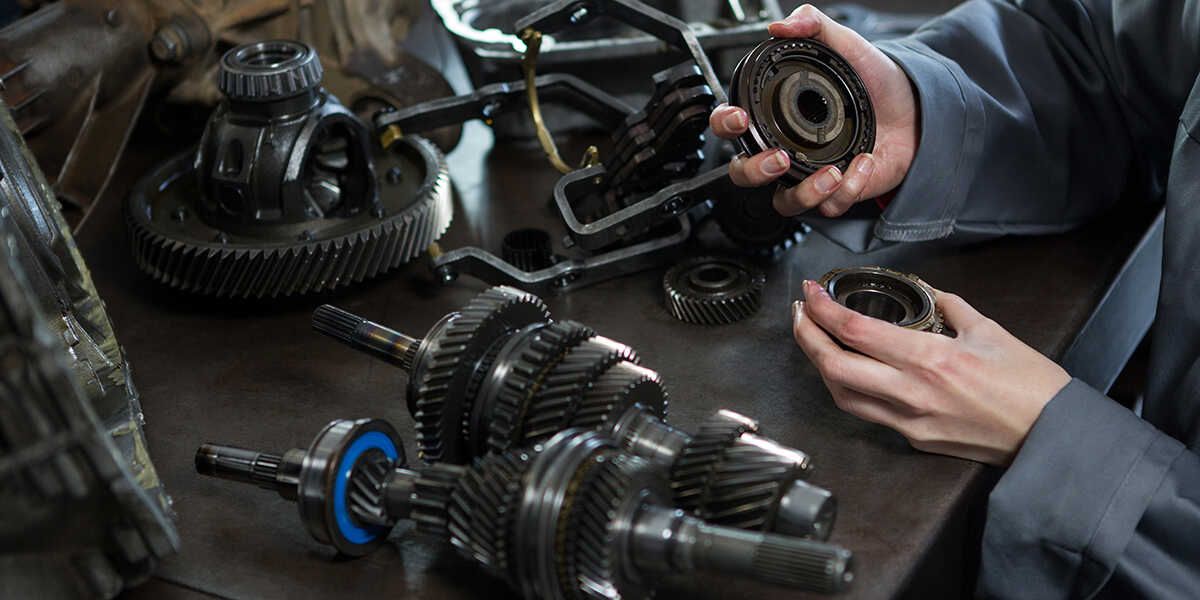
Should You Use OEM or Aftermarket Parts After a Collision?
Do OEM or aftermarket parts work better for your vehicle? Dealing with the aftermath of an accident is stressful enough, so the last thing you want is more confusion.
As the go-to crew for collision repair in Tucson, AZ, we at Formula 1 Collision Center have helped many people find the most appropriate replacement parts. Keep reading to learn more, or call (520) 369-4291 for some specific advice from our local experts.
What Are OEM Parts?
Original Equipment Manufacturer parts come directly from the vehicle’s maker. They’re the same components your make and model had when it left the assembly line. Think of it like putting a puzzle piece back where it belongs — it fits just right.
Many vehicle owners and repair specialists prefer to get factory-standard items for the peace of mind alone.
What Are Aftermarket Parts?
Third-party companies produce aftermarket parts. The car’s manufacturer does not produce these components. You might compare them to ordering off-brand cereal – it’s not the same brand, but it still does the job.
These components often cost less and are widely available. The quality can vary, though, so it never hurts to do a little homework.
Choosing Between OEM and Aftermarket Items
The OEM vs. aftermarket parts debate has persisted. Use these factors to narrow down your decision:
Cost
OEM parts are pricier because they come directly from the manufacturer. Typically, they undergo more testing and meet stricter quality standards.
Most insurance companies only cover aftermarket parts because they deem them sufficient replacements. You might have to pay extra for OEM parts if that’s your preference. Keep this in mind when reviewing your policy.
Safety
The last thing you want is another accident caused by faulty components. Interestingly, a study by the Insurance Institute for Highway Safety showed no major differences in crashworthiness between OEM and aftermarket parts. However, this test only covered one particular make and model, so we might reasonably expect the results to vary for different vehicles.
It’s important to know the reputation of the part’s manufacturer. Reading reviews and asking for a professional’s opinion can help you choose safer options.
Performance
One of the biggest original equipment manufacturer benefits is that you usually don’t need to worry about performance. The Certified Automotive Parts Association released a report that shows only one in four aftermarket parts match OEM quality.
This non-profit organization tests components from independent manufacturers to minimize performance gaps. Look for their certification for cheap but reliable aftermarket options.
Availability
Local stores, online shops, and even dealerships often stock aftermarket options. They’re easy to access and usually ready to ship.
OEM parts may take more time since they come straight from the manufacturer. Expect delays when your vehicle is an older model or less common.
Exploring Auto Parts Replacement Options in Tucson, AZ
Do you need an in-depth OEM parts durability comparison? What about exterior aftermarket parts pros and cons? Formula 1 Collision Center always has your vehicle covered.
Call (520) 369-4291 to decide between OEM or aftermarket parts, get advice on choosing the right body shop, and more.
Aftermarket parts pros and cons, Auto parts replacement options, Choosing between OEM and aftermarket, OEM parts durability comparison, OEM vs aftermarket parts, Original equipment manufacturer benefits